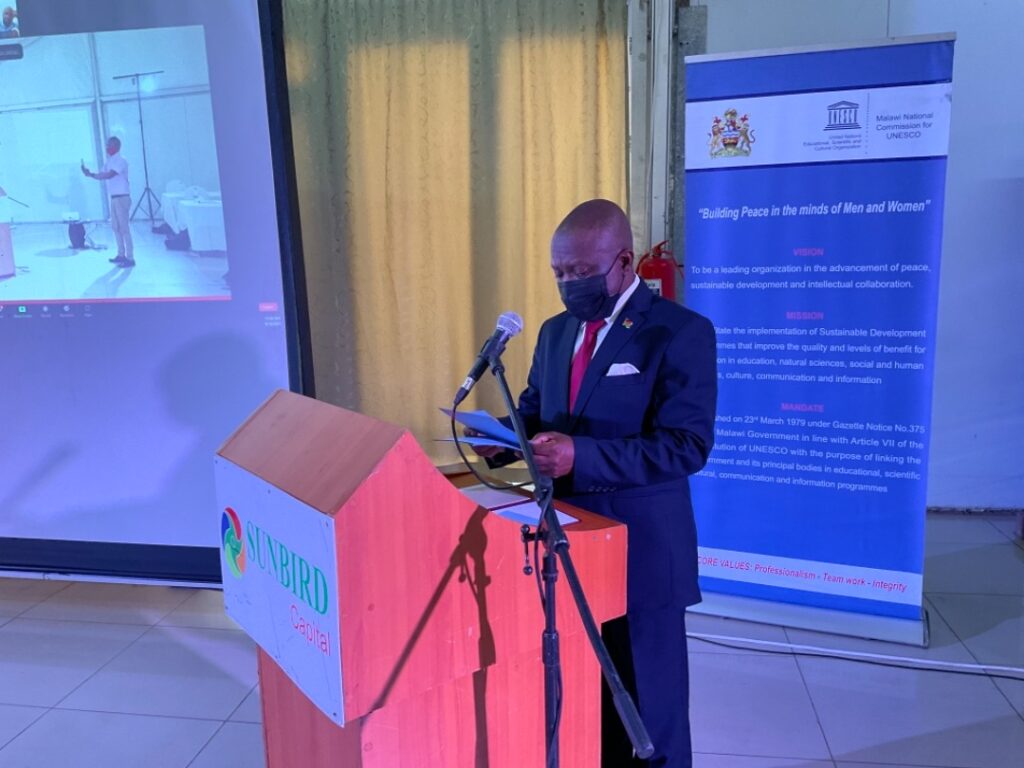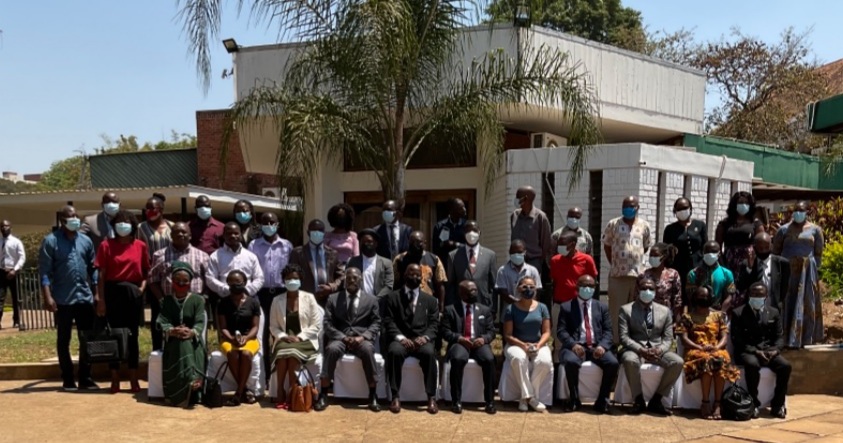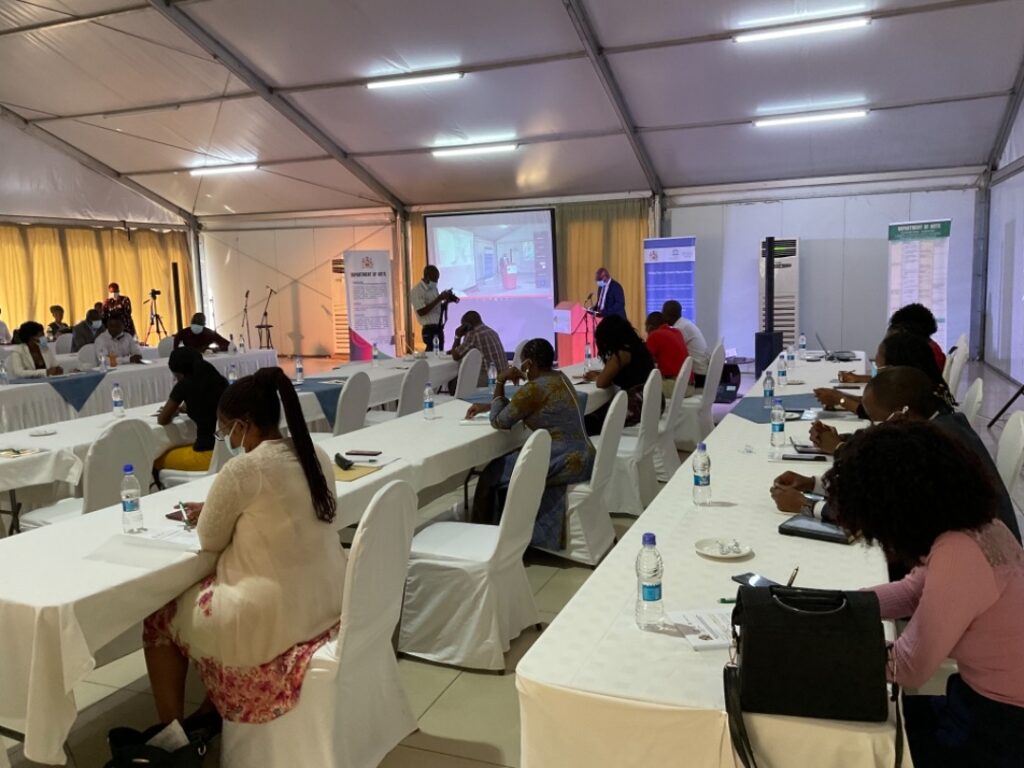
Minister of tourism, Culture and Wildlife, Michael Usi says the creative industry is critical to the overall growth of the Malawian economy.
The Minister said this on Thursday, September 16, when he officially launched a project to strengthen institutional capacities for the implementation of the national cultural policy. The project is funded by the Norwegian government through UNESCO.
The Minister said the project is a timely intervention as it would help institutions and various stakeholders to align culture and related issues to the overall economic growth agenda for the country.
He added that cultural issues as covered in the Malawi National Cultural Policy are broad in perspective, and that it was important for stakeholders to develop a business case so that the country starts reaping maximum economic from the same.
“May I remind you all that there was a time when cultural issues were valued programs for Government because of their social value to society. However, times have since changed. Arts, creative industries and heritage should also be valued because of their economic contribution to society. Cultural issues including the creative industries should now be seen as factors for job creation and income generation,” said the Minister.
He added that people ought to know that creativity is a serious economic enterprise which brings income to many households and employment to the youth.
He said cultural and creative industries have a multiplier effect for other sectors like tourism and broadcasting adding that it is the more reason why all these sectors should be harmonized to maximize value.

Said the Minister: “A recent review of the cultural and creative industries in Southern Africa has shown that Malawi lacks strong and diversified institutional facilities, which have been key for the growth of the sector in other SADC countries. I am informed that the specific focus of this project is to strengthen institutional capacities of stakeholder institutions.”
“However, there is more which need to be done. Key among these issues are finalizing the national council for the arts and heritage, establishing formal and diversified funding facilities for the sector. and devolving some of the functions to the districts. This will in turn support the productive capacities of players in cultural and creative industries.”
The Minister said he is particularly happy that almost all stakeholders are now realizing that culture is not just a welfare service but that it is a business case where all business behaviors must be applied.
Whilst calling upon all Ministry of Tourism, Culture and Wildlife officials to front the implementation of the project, the minister also emphasized on the need for stakeholders to realize and to segregate roles according to who can play them best.
“It does not always follow that those who cook the food should also be the ones to eat that food. Sometimes it is better to cook the food, and to let others do the eating,” said the Minister, using a metaphor to drive home the fact that oftentimes the fruits of these type of projects do not always trickle down to the people that are meant to benefit from the same such as artists.
In his virtual address to the meeting, Norwegian Ambassador to Malawi, Steiner Hagen said the presence of the Minister to launch the project is an indication of the seriousness that government of Malawi attaches to issues of culture.

He said for the past 20 years the Norwegian government has always been a friend of Malawi in terms of supporting projects related to the promotion of culture and cultural heritage.
He said the Norwegian government has supported other projects such as the music crossroads, which he said has now grown into a big cultural project involving artists from across the borders.
He also said his country has assisted the Malawi Writers Union (MAWU), and the promotion of traditional dances among others.
Whilst acknowledging the negative impact that COVID 19 has had on the creative industry, the ambassador hoped that the participation of all stakeholders in the implementation of this project will help the industry recover and develop in line with the 2005 UNESCO convention.
There were also presentations that were made by representatives of UNESCO as well as the Ministry of Tourism, Culture and wildlife.
Among the areas that the presentation focused were the the power of culture to transform societies and the power of the creative economy as a meaningful contributor to Gross Domestic Product (GDP).
The launch was also spiced by traditional music performed by Nyagondwe who is popularly known as ‘Nyago’.


